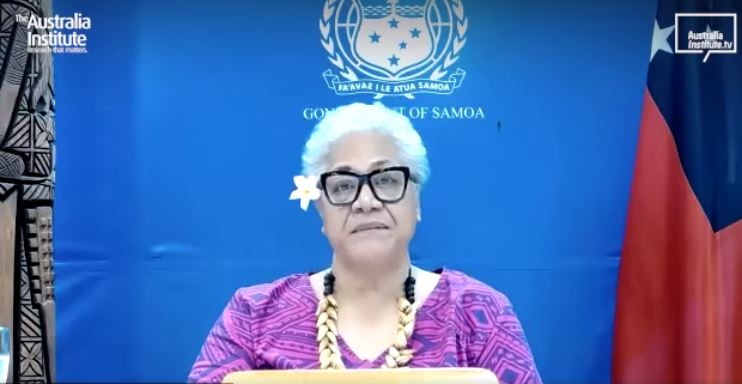“We face the most difficult questions — which islands to preserve, what happens when our people are forced to move against their will, how will we preserve our culture?” Marshall Islands President David Kabua told a recent webinar which provided COP26 Pacific perspectives, ahead of the climate conference in Glasgow this month.
“We need a signal from the rest of the world, particularly the large emitters, that our voices and our needs are being heard,” he said.
Federated States of Micronesia gets climate finance boost
Climate finance is a major preoccupation of Pacific states ahead of the conference.
The Pacific Community (SPC) has signed a funding agreement for its first full-sized project financed by the Green Climate Fund (GCF) to support the Federated States of Micronesia (FSM) in the implementation of climate change adaptation solutions. The US$16.6 million grant will see FSM establish a dedicated on-granting facility to bolster the ability of local authorities to deliver climate action at the community level.
This work will include climate-smart agriculture, coastal protection, household rainwater harvesting for drinking water and ecosystem rehabilitation.
The grant is the first to be implemented for a Pacific Small Island Developing State under the Enhancing Direct Access (EDA) pilot programme.
Fiji will also receive an allocation under US$125 million approved under the ‘Global Fund for Coral Reefs Investment Window’, alongside 15 other nations. Fiji Prime Minister Voreqe Bainimarama is demanding that the current climate finance for Small Island Developing States (SIDS)be increased to 10 percent of the total fund.
Australia should do more
Samoa’s Prime Minister, Fiame Naomi Mata’afa says COP26 “could be the point of no return” in preventing global warming.
And she has called on Australia to “return to the climate financing table” and set a more ambitious 2030 emissions reduction target.
“We need to push for cutting emissions in half by 2030 to help reach carbon neutrality by mid-century.”
World Bank study on legal implications of sea level rise for Small Island States
A new World Bank study examining the potential legal implications of sea-level rise on the maritime and legal rights of Pacific Island nations has suggested a re-examination of the current paradigms of international law.
One example is clarifying how territorial and maritime entitlements – including to resources – can be preserved in the face of rising sea levels, in line with the Pacific Islands Forum’s recent Declaration on Preserving Maritime Zones.
“As the impacts of climate change are being felt, it is clear that adaptation alone will not be sufficient for small island states such as the Marshall Islands,” said Acting RMI Chief Secretary, Catalino Kijiner. “This work will be helpful in informing government decision-making in the context of rising sea levels, and will help direct how the international community can best provide island and atoll nations with the support we need to address these unprecedented challenges.”
Legal Dimensions of Sea Level Rise: Pacific Perspectives, sets out the latest developments in international law to support policy considerations now underway in the Pacific and around the world.
